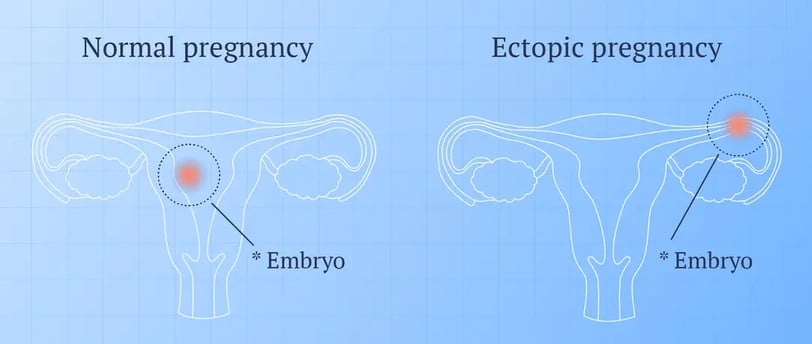Exploring Ectopia: When Tissues Stray from Their Usual Path
Conquer
8/31/20242 min read


What is Ectopia?
Welcome to another exciting edition of our 26-day challenge, where we delve into fascinating medical terms starting with each letter of the alphabet. Today, let's talk about a somewhat quirky term: ectopia. Ectopia refers to the displacement of tissues or organs from their normal anatomical location. This interesting phenomenon can occur in various body systems, and understanding it can give us insight into different medical conditions.
Types of Ectopia
Ectopia can manifest in numerous ways, depending on which tissues or organs are involved. Here are some common types:
Ectopia cordis: This rare condition involves the heart being located partially or completely outside the chest cavity. It’s a congenital defect often detected during prenatal ultrasounds.
Ectopic pregnancy: One of the more well-known forms, ectopic pregnancy occurs when a fertilized egg implants outside the uterus, commonly in the fallopian tube. This can lead to serious complications if not addressed promptly.
Renal ectopia: This type involves the kidneys being located outside their usual place. A kidney may end up in the pelvic region instead of the abdomen.
Why Does Ectopia Happen?
The causes of ectopia are varied and can differ depending on the type. Genetic factors, developmental issues during pregnancy, or external influences can play a role. For instance, ectopia cordis happens due to incomplete development of the chest wall, while ectopic pregnancies are often caused by problems with the fallopian tubes, such as inflammation or scarring.
Diagnosing and Treating Ectopia
Diagnosing ectopia typically involves imaging techniques like ultrasound, MRI, or CT scans, which can provide detailed views of the body’s internal structure. Treatment options vary and are often complex:
Ectopia cordis: Surgical intervention is usually necessary, though the risk is high, and the prognosis can be uncertain.
Ectopic pregnancy: Immediate medical treatment is crucial to prevent life-threatening complications. This may involve medication or surgical procedures to remove the ectopic tissue.
Renal ectopia: If the kidney functions normally and the person is symptom-free, no treatment might be necessary. In other cases, surgical correction could be required.
Conclusion
And there you have it—our journey into the world of ectopia. Understanding such medical terms not only broadens our knowledge but also enhances our appreciation for the complexities of the human body. Stay tuned for more intriguing terms as we continue our alphabetical challenge!
